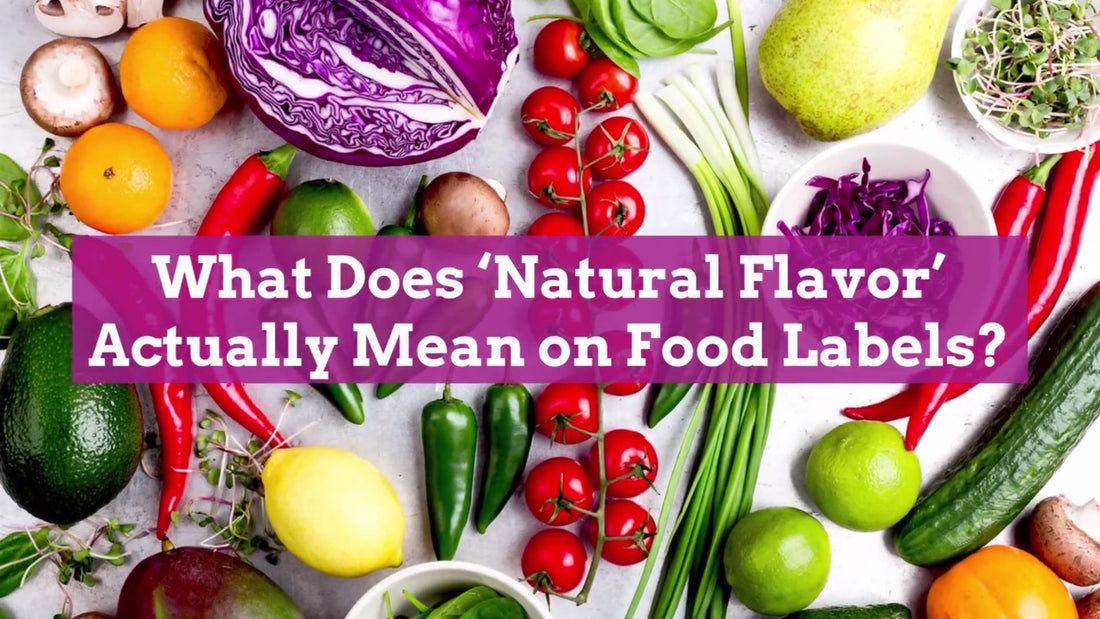
What does “natural” even mean?
It’s important to know that the FDA has a pretty fuzzy definition for “natural”. It simply means it doesn’t contain anything man made. Though it has a wholesome and appealing ring to it, “natural” on a food label or ingredient list doesn’t mean it’s healthy, organic, simple, or something your grandma had in her pantry.
Why are natural flavors used?
Natural (and artificial) flavors can help make food taste better, fresher, or like something the product doesn’t actually contain–like natural fruit flavoring in candy. Natural flavors don’t contribute anything nutritionally (no calories, no nutrients), they only provide flavoring.
They can be seen in all types of foods including snack items, drinks, ice cream, yogurt, etc.
What’s the difference between natural and artificial flavors?
Natural flavors are derived from plants and animals. Artificial flavors are derived from man-made substances. But both can (and often are) formulated in a lab, and the molecules may be identical.
What’s wrong with natural flavors?
There is some distrust of “natural flavors” and here are two reasons why: First, natural flavors often have additional ingredients in them like preservatives and stabilizers to make the flavors work better in the food. But those additional ingredients don’t have to come from natural sources.
Second, the FDA doesn’t require companies to disclose the specific ingredients included in the natural flavoring. So it’s impossible to know what ingredients are used–and whether you want to avoid them. For instance, vegans would want to steer clear of natural flavors that are derived from animals. And people with food allergies need to know exactly what a food contains.
Unfortunately, with the vague umbrella term of “natural flavor”, you’re left with a lot of questions.


